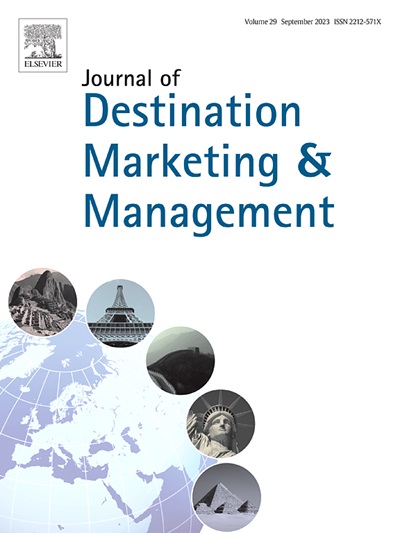乡村旅游是劳动力回流的催化剂?从混合嵌入性角度对返乡移民的再思考
IF 7.4
2区 管理学
Q1 HOSPITALITY, LEISURE, SPORT & TOURISM
引用次数: 0
摘要
本研究从混合嵌入视角对乡村旅游发展过程中的返乡务工人员进行类型学调查。结合模式匹配方法,对两个案例点的返乡迁移进行了对比分析。研究结果表明,乡村旅游目的地返乡人员根据其动机和停留时间可分为创业型返乡、生活型返乡、季节性返乡和漂流型返乡四种类型。回归移民受到认知、社会和制度嵌入性的混合影响,在不同类型的回归移民中表现出不同程度的混合嵌入性。考虑到返乡人口的异质性,乡村旅游所发挥的作用是不同的,并受到其不同嵌入程度的影响。本研究提供了一种新的回迁类型,并调查了乡村旅游的独特作用,为乡村旅游背景下的移民研究提供了理论和实践见解。本文章由计算机程序翻译,如有差异,请以英文原文为准。
Rural tourism as a catalyst for labor return? A rethinking of return migration from a mixed embeddedness perspective
This study conducts a typological investigation on return migrants during the development of rural tourism from the perspective of mixed embeddedness. It employs a comparative analysis of return migration in two case sites combined with the pattern-matching method. The findings suggest that return migrants in rural tourism destinations can be categorized into four types based on their motivation and the length of intended stay, including entrepreneurial return migrants, lifestyle return migrants, seasonal return migrants, and drifting return migrants. Return migration is influenced by a mix of cognitive, social, and institutional embeddedness, exhibiting varying degrees of mixed embeddedness among different types of return migrants. Given the heterogeneity among return migrants, the role played by rural tourism varies and is affected by their various levels of embeddedness. By providing a novel typology of return migration and investigating the distinct role of rural tourism, this study offers theoretical and practical insights into migration studies within the context of rural tourism.
求助全文
通过发布文献求助,成功后即可免费获取论文全文。
去求助
来源期刊
CiteScore
18.60
自引率
3.60%
发文量
46
审稿时长
43 days
期刊介绍:
The Journal of Destination Marketing & Management (JDMM) is an international journal that focuses on the study of tourist destinations, specifically their marketing and management. It aims to provide a critical understanding of all aspects of destination marketing and management, considering their unique contexts in terms of policy, planning, economics, geography, and history. The journal seeks to develop a strong theoretical foundation in this field by incorporating knowledge from various disciplinary approaches. Additionally, JDMM aims to promote critical thinking and innovation in destination marketing and management, expand the boundaries of knowledge, and serve as a platform for international idea exchange.

 求助内容:
求助内容: 应助结果提醒方式:
应助结果提醒方式:


